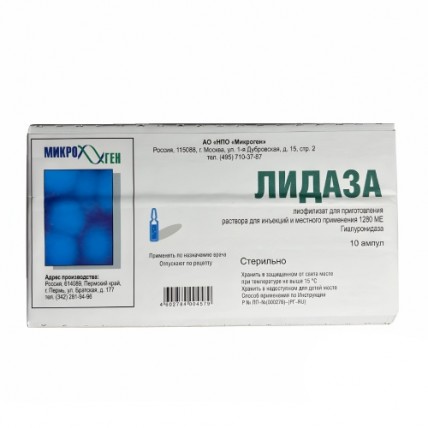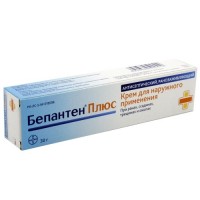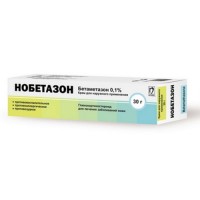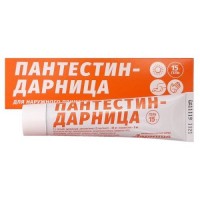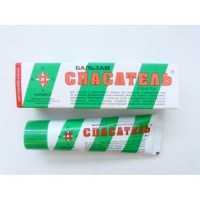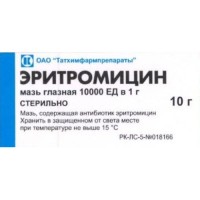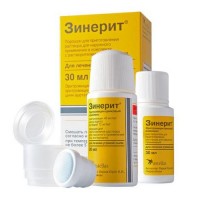LYDASE® (Hyaluronidase Injection) 64 u/mL x 10 Ampoules
- $35.00
What is LYDASE®?
LYDASE® is a medicinal product that contains hyaluronidase, an enzyme derived from the testes of cattle.
It works by breaking down hyaluronic acid, a key substance in the connective tissue.
This action helps reduce the viscosity of hyaluronic acid, improving tissue permeability and fluid movement between tissues.
LYDASE® is particularly useful for reducing scar tissue, easing joint stiffness, and aiding in other connective tissue conditions. Its effects can last up to 48 hours when injected under the skin.
How Does LYDASE® Work?
Hyaluronidase, the active component of LYDASE®, works by breaking down hyaluronic acid, a compound that contributes to the "cementing" effect in connective tissues.
By reducing the viscosity of hyaluronic acid, LYDASE® facilitates better fluid transfer between tissues, which reduces swelling and aids in tissue recovery.
It can also enhance joint mobility, soften scars, and help manage various forms of tissue contractures.
What is the Difference Between 1280 ME and 64 U in LYDASE®?
When it comes to LYDASE®, the dosage is expressed in two units: 1280 ME and 64 U. Here is what each of these units means:
1280 ME (International Units): This indicates the total amount of active hyaluronidase enzyme in each ampoule. It measures the biological activity of the enzyme, showing its capacity to effectively break down hyaluronic acid.
64 U/mL: This refers to the concentration when LYDASE® is prepared for use. Specifically, each ampoule, containing 1280 ME of hyaluronidase, yields a solution with a concentration of 64 Units per milliliter when mixed properly. This working concentration ensures accurate dosing for various medical applications.
Thus, while 1280 ME refers to the total enzyme activity present, 64 U describes the concentration used in treatment solutions.
What Are the Indications for LYDASE® Use?
LYDASE® is indicated for a wide range of medical conditions that involve connective tissue issues or scarring. Some common indications include:
- Burn, traumatic, and post-surgical scars: Helps reduce scar formation and promote healing.
- Chronic joint stiffness and contractures: Useful in conditions like Dupuytren’s contracture and joint contractures following injury.
- Osteoarthritis and ankylosing spondylitis: Helps improve movement and reduce symptoms associated with these conditions.
- Traumatic injuries to nerves: Supports nerve recovery in conditions such as neuritis or plexitis.
- Eye conditions: Used for certain types of eye conditions, such as subconjunctival or peribulbar inflammation.
- Skin ulcers: Promotes healing in long-standing ulcers, including radiation-induced ones.
- Preparation for skin grafts: Helps prepare the tissue for plastic surgeries involving skin grafts.
Additionally, LYDASE® is used in combination therapies to improve the delivery of other medications to affected tissues.
How Should LYDASE® Be Administered?
LYDASE® is versatile in its modes of administration, which include:
- Subcutaneous or Intramuscular Injections: Typically, 1280 ME is injected under the scarred tissue or near the affected joints or nerves. The injections are administered daily or every other day for 10 to 20 doses.
- Inhalation Therapy: For lung conditions like tuberculosis, LYDASE® can be used as an inhalation treatment once daily. It is dissolved in saline and used over a course of 20 to 25 sessions.
- Ophthalmic Use: In cases involving eye tissues, LYDASE® is administered through subconjunctival or peribulbar injections to help manage inflammatory conditions.
- Topical Application: The solution can also be applied externally by saturating bandages with the LYDASE® solution to soften scars or improve healing in ulcers.
- Electrophoresis Treatment: LYDASE® may be administered using electrophoresis to further enhance tissue penetration.
The preparation of LYDASE® for each method varies slightly, generally involving dissolution in saline or, in some cases, procaine.
Are There Any Contraindications for LYDASE®?
LYDASE® is not recommended for use in several situations:
- Allergic Reactions: Those with known hypersensitivity to hyaluronidase should avoid this product.
- Acute Infections or Recent Hemorrhage: Should not be used if there are ongoing acute infections or recent bleeding events.
- Pregnancy and Breastfeeding: The use of LYDASE® during pregnancy or while breastfeeding is contraindicated.
- Children Under 18: The safety and efficacy of LYDASE® in pediatric patients have not been established.
For inhalation, individuals with severe respiratory failure or those with recent pulmonary hemorrhage should not use LYDASE®.
What Should You Know About Side Effects?
The use of LYDASE® can sometimes lead to side effects. These include:
- Allergic Reactions: These may manifest as localized skin reactions such as dermatitis, especially with prolonged use.
- Other Reactions: There may be more generalized allergic reactions, requiring discontinuation of the treatment.
Patients are advised to consult with a healthcare professional if they notice any side effects.
How Does LYDASE® Interact with Other Medications?
LYDASE® can be combined with antibiotics, antivirals, antifungals, and bronchodilators, and it has been shown to increase the bioavailability of these drugs. However, caution is required when using LYDASE® with large doses of salicylates, corticosteroids, estrogen, or antihistamines, as these combinations can decrease the enzyme activity of LYDASE®.
It should not be used in conjunction with furosemide, benzodiazepines, or phenytoin.
How Should LYDASE® Be Stored?
To ensure LYDASE® maintains its efficacy, it should be stored in a location protected from light at temperatures not exceeding 15°C (59°F).
It is also crucial to keep the product out of reach of children.
If any signs of improper storage—such as a defect in the packaging or discoloration of the powder—are noted, the product should not be used.
What Precautions Are Necessary When Using LYDASE®?
- Injection Sites: Do not inject LYDASE® into areas with active infections or tumors.
- Preparation of Solutions: Solutions should be freshly prepared and used within 24 hours to maintain potency.
- Allergy Test: A skin test using 20 µL of hyaluronidase is recommended before treatment to assess for potential allergic reactions.
- Sudden Discontinuation: LYDASE® can be stopped abruptly if needed, without requiring a gradual dose reduction.
- Missed Dose: In case of a missed dose, the subsequent dose should be taken as usual without doubling it to compensate.
